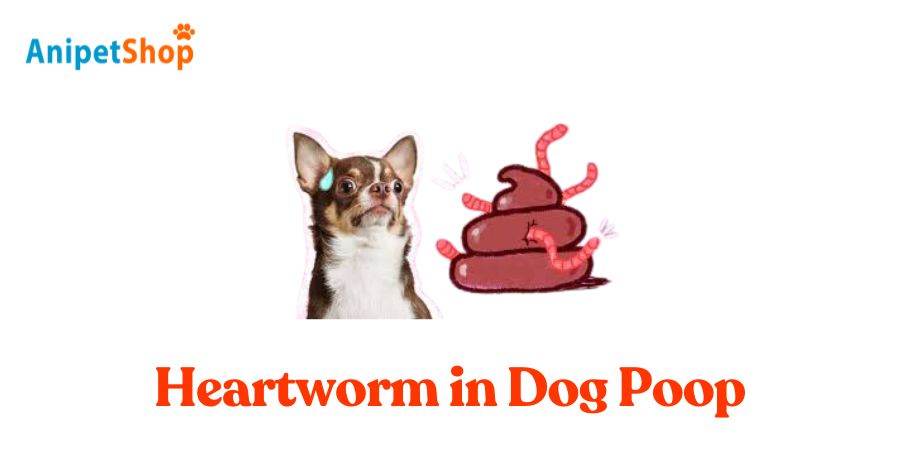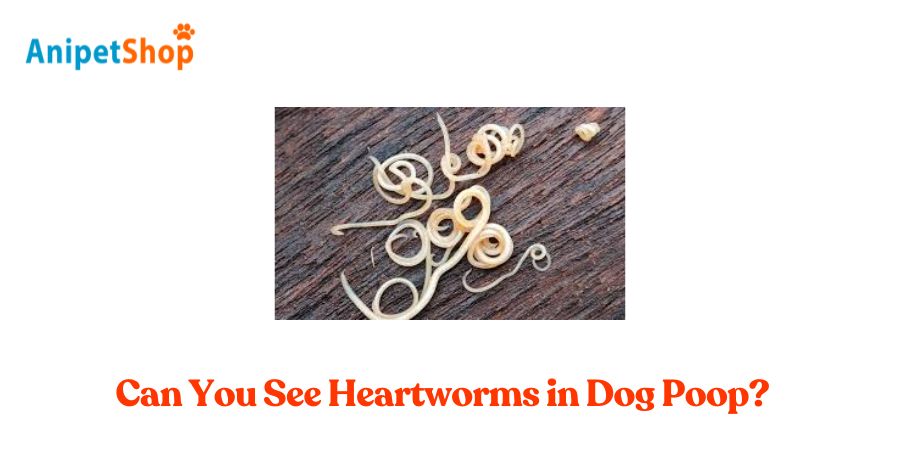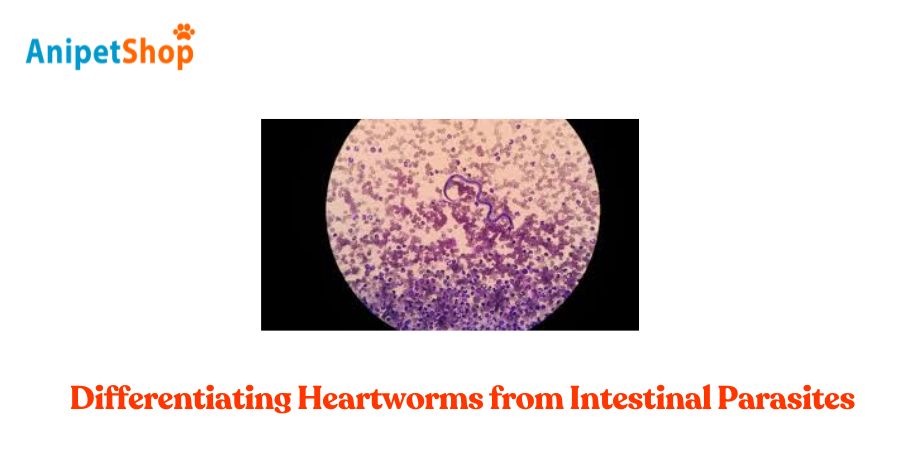Heartworm in Dog Poop
Seeing worms in your dog’s poop can be alarming, but it’s important to know that heartworms don’t appear in feces. Heartworms live in the heart and lungs, not the digestive tract. So, what you’re seeing are likely intestinal parasites like roundworms or tapeworms. It’s crucial to know the difference for proper treatment.
Wondering how to identify these parasites and what steps to take next? First, recognize that roundworms look like spaghetti strands, while tapeworms appear as small rice-like segments. Both can cause discomfort and health issues for your pet.
If you spot these worms, seek veterinary advice promptly. The vet can prescribe the right medication to eliminate the parasites. Regular deworming and keeping your dog’s environment clean are key preventative measures.
Understanding these distinctions ensures your dog gets the right care, keeping them healthy and happy.

Can You See Heartworms in Dog Poop?

You won’t see heartworms in your dog’s poop because they live in the heart and lungs, not the digestive system. Heartworms, as their name suggests, infect the heart and the large blood vessels of the lungs. These parasites are transmitted through mosquito bites and travel through your dog’s bloodstream to reach their final destination.
Once there, they mature and can cause severe health issues if left untreated.
Since heartworms inhabit the cardiovascular system, they don’t pass through the digestive tract like other parasites might. This means that when your dog goes to the bathroom, you won’t find any evidence of heartworms in their stool. Instead, heartworms remain hidden within the circulatory system, making them difficult to detect without specific tests.
Understanding this is important for proper diagnosis and treatment. If you suspect your dog has heartworms, look for symptoms such as coughing, fatigue, and weight loss, rather than checking their feces. A vet can perform blood tests and possibly radiographs or ultrasounds to confirm the presence of heartworms.
Awareness of where heartworms live helps guarantee your dog gets the appropriate medical attention they need.
Differentiating Heartworms from Intestinal Parasites

If you spot worms in your dog’s stool, it’s crucial to identify them correctly.
Roundworms and tapeworms are common intestinal parasites and have different appearances.
Proper identification helps you decide the next steps for your pet’s health.
What to Do If You See Worms in Your Dog’s Poop

Seeing worms in your dog’s poop can be alarming, but it’s important to know what you’re dealing with. Heartworms don’t show up in feces; they live in the heart and lungs. What you’re likely seeing are intestinal parasites like roundworms, tapeworms, or hookworms.
First, contact your veterinarian right away. Don’t try to diagnose the issue yourself; misidentification could lead to incorrect treatment. Your vet will provide guidance and may request a stool sample for accurate identification.
To collect a sample, use a clean plastic bag or container. Scoop a small amount of fresh feces, ensuring you include any visible worms. Seal the container tightly to prevent contamination. Store it in a cool place, such as a refrigerator, until you can bring it to the vet.
While waiting for your appointment, keep your dog’s living area clean to prevent further contamination and potential spread to other pets or humans. Wash your hands thoroughly after handling your dog’s stool or cleaning up their living space.
Maintaining a clean environment is crucial. This simple step helps protect both your pets and your family from potential harm.
Conclusion
In conclusion, heartworms won’t appear in your dog’s poop. Instead, you’re likely dealing with intestinal parasites like roundworms or tapeworms.
It’s essential to distinguish between heartworms and other parasites to ensure your dog gets the proper treatment. Remember, a dog with heartworms can interact with other dogs but needs supervision and prompt treatment to avoid severe health issues.
Always consult your veterinarian for the best care plan.
Lily Watson is an author specializing in veterinary care in Australia. With a profound passion for animal welfare and a solid foundation in veterinary science, Lily has dedicated herself to disseminating valuable knowledge and information for both pet owners and professionals in this field.

